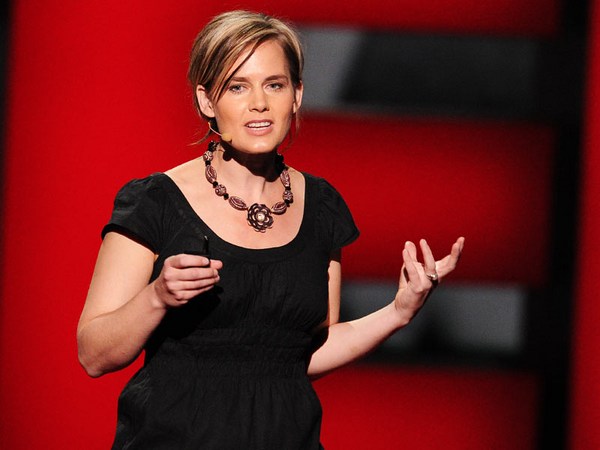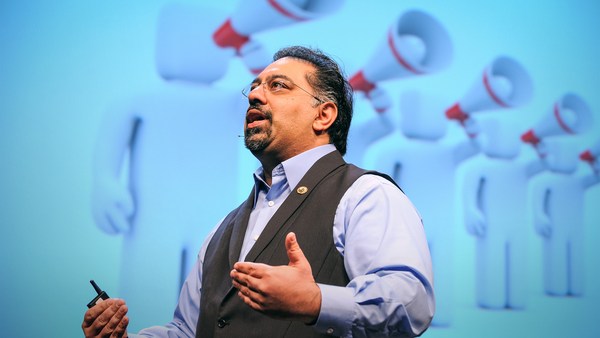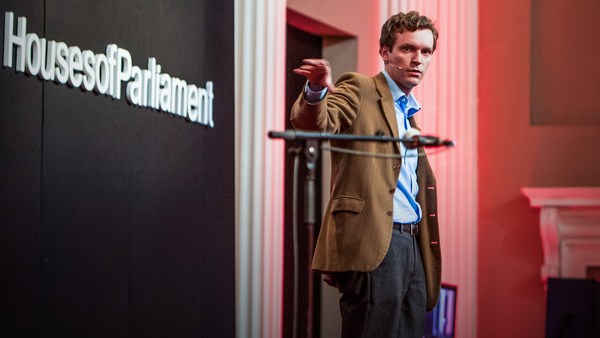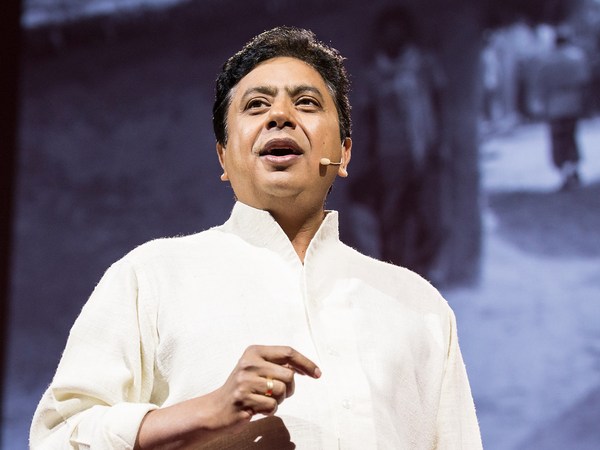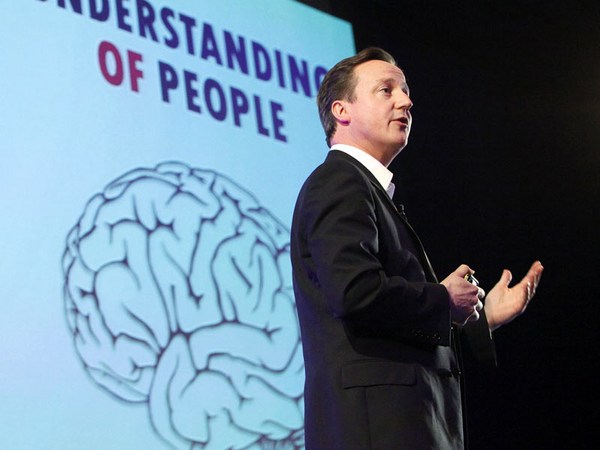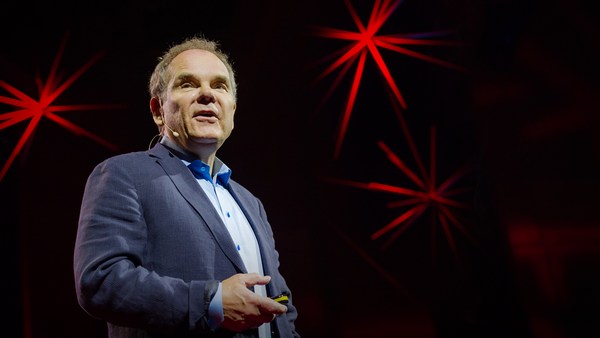So when the White House was built in the early 19th century, it was an open house. Neighbors came and went. Under President Adams, a local dentist happened by. He wanted to shake the President's hand. The President dismissed the Secretary of State, whom he was conferring with, and asked the dentist if he would remove a tooth. Later, in the 1850s, under President Pierce, he was known to have remarked — probably the only thing he's known for — when a neighbor passed by and said, "I'd love to see the beautiful house," and Pierce said to him, "Why my dear sir, of course you may come in. This isn't my house. It is the people's house."
Well, when I got to the White House in the beginning of 2009, at the start of the Obama Administration, the White House was anything but open. Bomb blast curtains covered my windows. We were running Windows 2000. Social media were blocked at the firewall. We didn't have a blog, let alone a dozen twitter accounts like we have today. I came in to become the head of Open Government, to take the values and the practices of transparency, participation and collaboration, and instill them into the way that we work, to open up government, to work with people.
Now one of the things that we know is that companies are very good at getting people to work together in teams and in networks to make very complex products, like cars and computers, and the more complex the products are a society creates, the more successful the society is over time. Companies make goods, but governments, they make public goods. They work on the cure for cancer and educating our children and making roads, but we don't have institutions that are particularly good at this kind of complexity. We don't have institutions that are good at bringing our talents to bear, at working with us in this kind of open and collaborative way.
So when we wanted to create our Open Government policy, what did we do? We wanted, naturally, to ask public sector employees how we should open up government. Turns out that had never been done before. We wanted to ask members of the public to help us come up with a policy, not after the fact, commenting on a rule after it's written, the way is typically the case, but in advance. There was no legal precedent, no cultural precedent, no technical way of doing this. In fact, many people told us it was illegal.
Here's the crux of the obstacle. Governments exist to channel the flow of two things, really, values and expertise to and from government and to and from citizens to the end of making decisions. But the way that our institutions are designed, in our rather 18th-century, centralized model, is to channel the flow of values through voting, once every four years, once every two years, at best, once a year. This is a rather anemic and thin way, in this era of social media, for us to actually express our values. Today we have technology that lets us express ourselves a great deal, perhaps a little too much.
Then in the 19th century, we layer on the concept of bureaucracy and the administrative state to help us govern complex and large societies. But we've centralized these bureaucracies. We've entrenched them. And we know that the smartest person always works for someone else. We need to only look around this room to know that expertise and intelligence is widely distributed in society, and not limited simply to our institutions.
Scientists have been studying in recent years the phenomenon that they often describe as flow, that the design of our systems, whether natural or social, channel the flow of whatever runs through them. So a river is designed to channel the flow of water, and the lightning bolt that comes out of a cloud channels the flow of electricity, and a leaf is designed to channel the flow of nutrients to the tree, sometimes even having to route around an obstacle, but to get that nutrition flowing. The same can be said for our social systems, for our systems of government, where, at the very least, flow offers us a helpful metaphor for understanding what the problem is, what's really broken, and the urgent need that we have, that we all feel today, to redesign the flow of our institutions.
We live in a Cambrian era of big data, of social networks, and we have this opportunity to redesign these institutions that are actually quite recent. Think about it: What other business do you know, what other sector of the economy, and especially one as big as the public sector, that doesn't seek to reinvent its business model on a regular basis? Sure, we invest plenty in innovation. We invest in broadband and science education and science grants, but we invest far too little in reinventing and redesigning the institutions that we have.
Now, it's very easy to complain, of course, about partisan politics and entrenched bureaucracy, and we love to complain about government. It's a perennial pastime, especially around election time, but the world is complex. We soon will have 10 billion people, many of whom will lack basic resources. So complain as we might, what actually can replace what we have today? What comes the day after the Arab Spring?
Well, one attractive alternative that obviously presents itself to us is that of networks. Right? Networks like Facebook and Twitter. They're lean. They're mean. You've got 3,000 employees at Facebook governing 900 million inhabitants. We might even call them citizens, because they've recently risen up to fight against legislative incursion, and the citizens of these networks work together to serve each other in great ways. But private communities, private, corporate, privatizing communities, are not bottom-up democracies. They cannot replace government. Friending someone on Facebook is not complex enough to do the hard work of you and I collaborating with each other and doing the hard work of governance. But social media do teach us something. Why is Twitter so successful? Because it opens up its platform. It opens up the API to allow hundreds of thousands of new applications to be built on top of it, so that we can read and process information in new and exciting ways. We need to think about how to open up the API of government, and the way that we're going to do that, the next great superpower is going to be the one who can successfully combine the hierarchy of institution -- because we have to maintain those public values, we have to coordinate the flow -- but with the diversity and the pulsating life and the chaos and the excitement of networks, all of us working together to build these new innovations on top of our institutions, to engage in the practice of governance.
We have a precedent for this. Good old Henry II here, in the 12th century, invented the jury. Powerful, practical, palpable model for handing power from government to citizens. Today we have the opportunity, and we have the imperative, to create thousands of new ways of interconnecting between networks and institutions, thousands of new kinds of juries: the citizen jury, the Carrotmob, the hackathon, we are just beginning to invent the models by which we can cocreate the process of governance.
Now, we don't fully have a picture of what this will look like yet, but we're seeing pockets of evolution emerging all around us -- maybe not even evolution, I'd even start to call it a revolution -- in the way that we govern. Some of it's very high-tech, and some of it is extremely low-tech, such as the project that MKSS is running in Rajasthan, India, where they take the spending data of the state and paint it on 100,000 village walls, and then invite the villagers to come and comment who is on the government payroll, who's actually died, what are the bridges that have been built to nowhere, and to work together through civic engagement to save real money and participate and have access to that budget.
But it's not just about policing government. It's also about creating government. Spacehive in the U.K. is engaging in crowd-funding, getting you and me to raise the money to build the goalposts and the park benches that will actually allow us to deliver better services in our communities. No one is better at this activity of actually getting us to engage in delivering services, sometimes where none exist, than Ushahidi. Created after the post-election riots in Kenya in 2008, this crisis-mapping website and community is actually able to crowdsource and target the delivery of better rescue services to people trapped under the rubble, whether it's after the earthquakes in Haiti, or more recently in Italy. And the Red Cross too is training volunteers and Twitter is certifying them, not simply to supplement existing government institutions, but in many cases, to replace them.
Now what we're seeing lots of examples of, obviously, is the opening up of government data, not enough examples of this yet, but we're starting to see this practice of people creating and generating innovative applications on top of government data. There's so many examples I could have picked, and I selected this one of Jon Bon Jovi. Some of you may or may not know that he runs a soup kitchen in New Jersey, where he caters to and serves the homeless and particularly homeless veterans. In February, he approached the White House, and said, "I would like to fund a prize to create scalable national applications, apps, that will help not only the homeless but those who deliver services [to] them to do so better." February 2012 to June of 2012, the finalists are announced in the competition. Can you imagine, in the bureaucratic world of yesteryear, getting anything done in a four-month period of time? You can barely fill out the forms in that amount of time, let alone generate real, palpable innovations that improve people's lives.
And I want to be clear to mention that this open government revolution is not about privatizing government, because in many cases what it can do when we have the will to do so is to deliver more progressive and better policy than the regulations and the legislative and litigation-oriented strategies by which we make policy today. In the State of Texas, they regulate 515 professions, from well-driller to florist. Now, you can carry a gun into a church in Dallas, but do not make a flower arrangement without a license, because that will land you in jail. So what is Texas doing? They're asking you and me, using online policy wikis, to help not simply get rid of burdensome regulations that impede entrepreneurship, but to replace those regulations with more innovative alternatives, sometimes using transparency in the creation of new iPhone apps that will allows us both to protect consumers and the public and to encourage economic development.
That is a nice sideline of open government. It's not only the benefits that we've talked about with regard to development. It's the economic benefits and the job creation that's coming from this open innovation work. Sberbank, the largest and oldest bank in Russia, largely owned by the Russian government, has started practicing crowdsourcing, engaging its employees and citizens in the public in developing innovations. Last year they saved a billion dollars, 30 billion rubles, from open innovation, and they're pushing radically the extension of crowdsourcing, not only from banking, but into the public sector. And we see lots of examples of these innovators using open government data, not simply to make apps, but then to make companies and to hire people to build them working with the government.
So a lot of these innovations are local. In San Ramon, California, they published an iPhone app in which they allow you or me to say we are certified CPR-trained, and then when someone has a heart attack, a notification goes out so that you can rush over to the person over here and deliver CPR. The victim who receives bystander CPR is more than twice as likely to survive. "There is a hero in all of us," is their slogan.
But it's not limited to the local. British Columbia, Canada, is publishing a catalogue of all the ways that its residents and citizens can engage with the state in the cocreation of governance.
Let me be very clear, and perhaps controversial, that open government is not about transparent government. Simply throwing data over the transom doesn't change how government works. It doesn't get anybody to do anything with that data to change lives, to solve problems, and it doesn't change government. What it does is it creates an adversarial relationship between civil society and government over the control and ownership of information. And transparency, by itself, is not reducing the flow of money into politics, and arguably, it's not even producing accountability as well as it might if we took the next step of combining participation and collaboration with transparency to transform how we work.
We're going to see this evolution really in two phases, I think. The first phase of the open government revolution is delivering better information from the crowd into the center. Starting in 2005, and this is how this open government work in the U.S. really got started, I was teaching a patent law class to my students and explaining to them how a single person in the bureaucracy has the power to make a decision about which patent application becomes the next patent, and therefore monopolizes for 20 years the rights over an entire field of inventive activity. Well, what did we do? We said, we can make a website, we can make an expert network, a social network, that would connect the network to the institution to allow scientists and technologists to get better information to the patent office to aid in making those decisions. We piloted the work in the U.S. and the U.K. and Japan and Australia, and now I'm pleased to report that the United States Patent Office will be rolling out universal, complete, and total openness, so that all patent applications will now be open for citizen participation, beginning this year.
The second phase of this evolution — Yeah. (Applause) They deserve a hand. (Applause)
The first phase is in getting better information in. The second phase is in getting decision-making power out. Participatory budgeting has long been practiced in Porto Alegre, Brazil. They're just starting it in the 49th Ward in Chicago. Russia is using wikis to get citizens writing law together, as is Lithuania. When we start to see power over the core functions of government — spending, legislation, decision-making — then we're well on our way to an open government revolution.
There are many things that we can do to get us there. Obviously opening up the data is one, but the important thing is to create lots more -- create and curate -- lots more participatory opportunities. Hackathons and mashathons and working with data to build apps is an intelligible way for people to engage and participate, like the jury is, but we're going to need lots more things like it. And that's why we need to start with our youngest people. We've heard talk here at TED about people biohacking and hacking their plants with Arduino, and Mozilla is doing work around the world in getting young people to build websites and make videos. When we start by teaching young people that we live, not in a passive society, a read-only society, but in a writable society, where we have the power to change our communities, to change our institutions, that's when we begin to really put ourselves on the pathway towards this open government innovation, towards this open government movement, towards this open government revolution.
So let me close by saying that I think the important thing for us to do is to talk about and demand this revolution. We don't have words, really, to describe it yet. Words like equality and fairness and the traditional elections, democracy, these are not really great terms yet. They're not fun enough. They're not exciting enough to get us engaged in this tremendous opportunity that awaits us. But I would argue that if we want to see the kinds of innovations, the hopeful and exciting innovations that we hear talked about here at TED, in clean energy, in clean education, in development, if we want to see those adopted and we want to see those scaled, we want to see them become the governance of tomorrow, then we must all participate, then we must get involved. We must open up our institutions, and like the leaf, we must let the nutrients flow throughout our body politic, throughout our culture, to create open institutions to create a stronger democracy, a better tomorrow. Thank you. (Applause)
